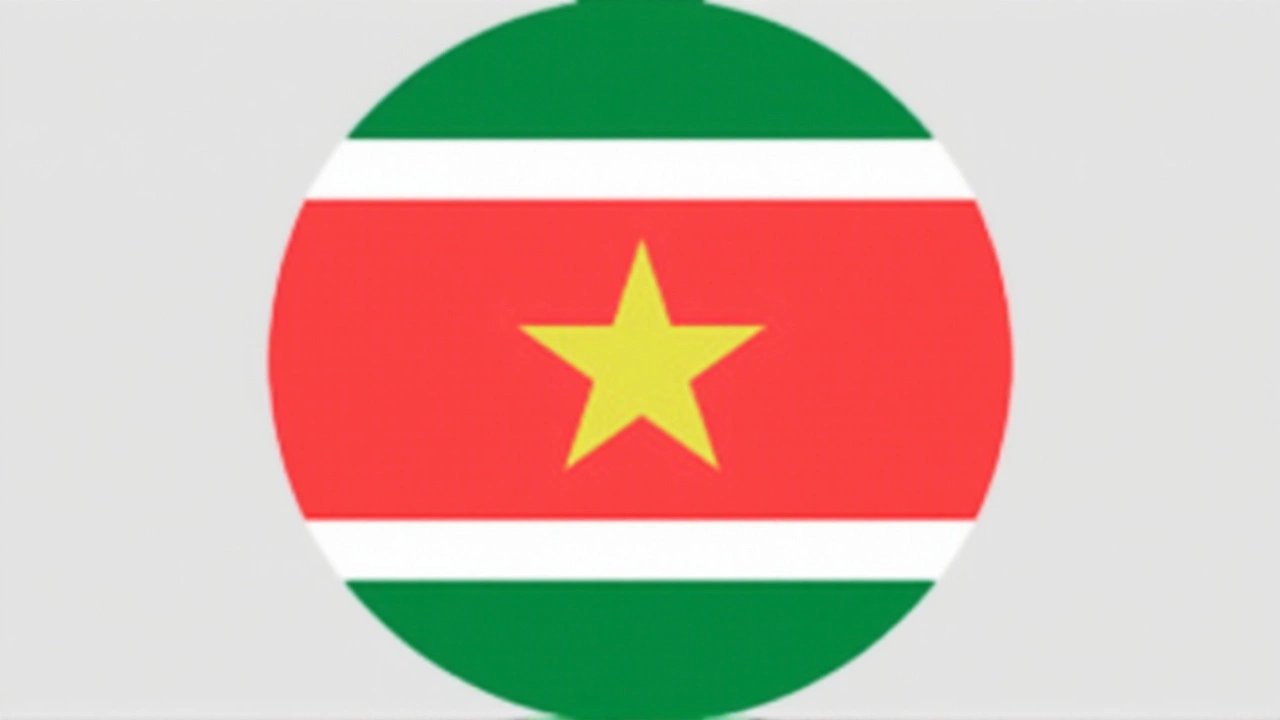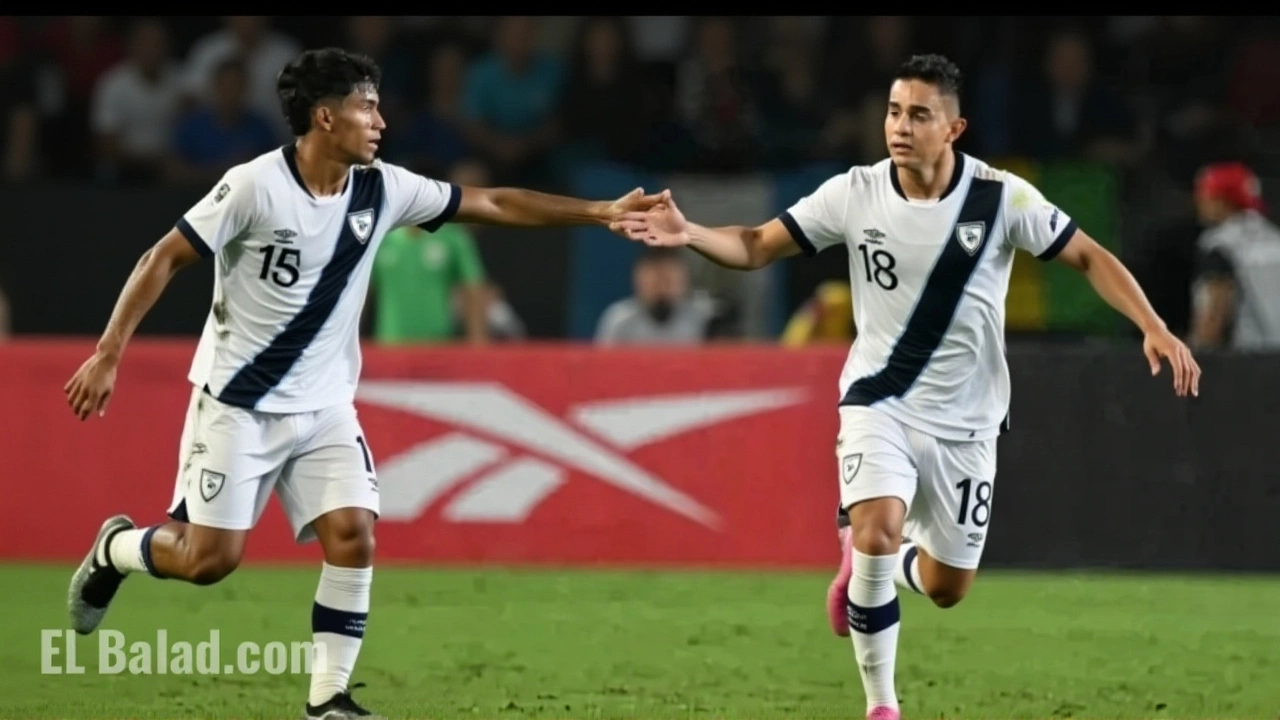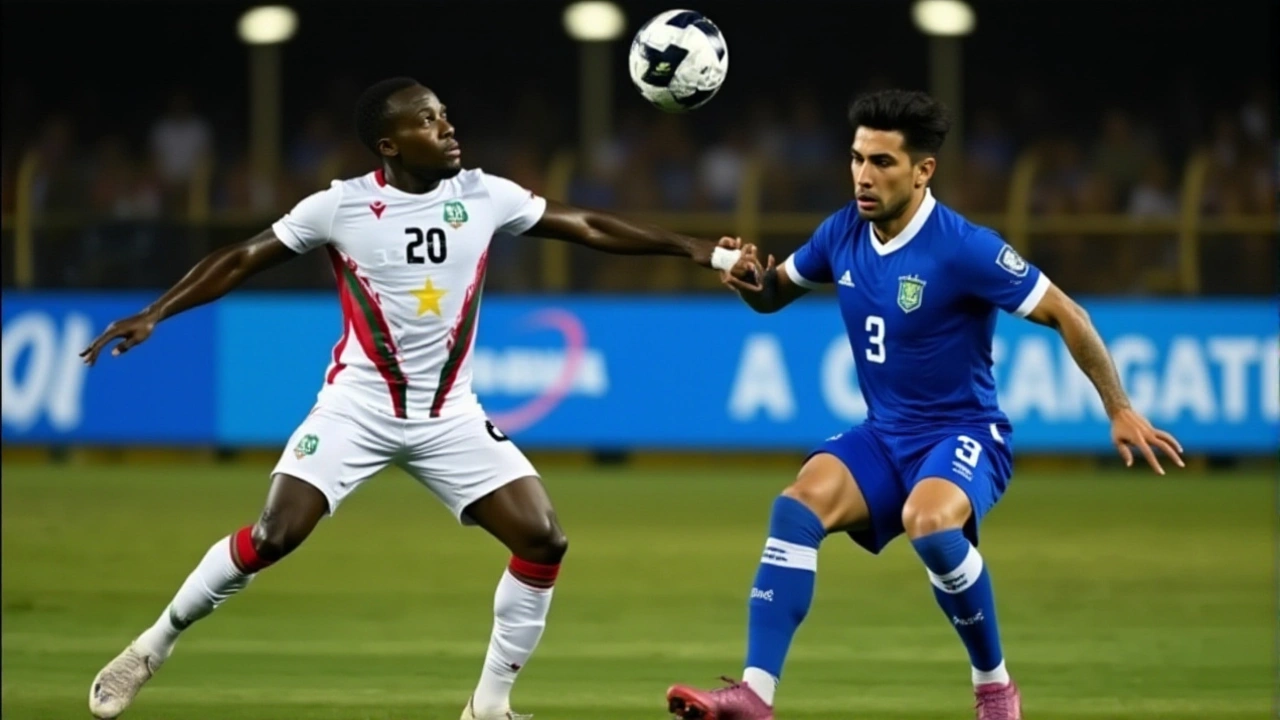Guatemala beat Suriname 3-1 on Tuesday, November 18, 2025, at Estadio Manuel Felipe Carrera in Guatemala City — but the win didn’t send Los Chapines to the 2026 FIFA World Cup. Instead, it kept Suriname alive. The final whistle blew at 19:00 local time, and while Guatemala celebrated a hard-fought victory, the real story unfolded on the group table: Suriname advanced to the FIFA Play-Off Tournament thanks to a 93rd-minute own goal that swung the goal difference in their favor. It’s the kind of twist only football can deliver.
The Match That Changed Everything
It was a tense, cagey first half — 0-0 at the break, with both teams wary of mistakes. Guatemala came out firing after halftime. In the 49th minute, Darwin Lom rose above the defense to head home a cross from Óscar Santis. The stadium erupted. Then, in the 57th minute, Olger Escobar unleashed a left-footed rocket from the edge of the box — no keeper had a chance. By the 65th minute, Óscar Santis finished off a fast break with a clinical left-footed strike. Guatemala was up 3-0, and fans began dreaming of direct qualification.
But football doesn’t care about dreams. In the 93rd minute, Sheraldo Becker of Suriname sent a low cross into the box. The ball deflected off Nicolás Samayoa, Guatemala’s own defender, and slipped past goalkeeper Hagen. The goal was officially recorded as an own goal — and it was the most important goal of the night. Not for Suriname’s pride, but for their playoff fate.
Why Suriname Advanced Despite Losing
Here’s the thing: Suriname didn’t need to win. They just needed to finish with a better goal difference than Guatemala. Going into the final matchday, Suriname had +3 goal difference; Guatemala had +1. A 3-0 win for Guatemala would’ve given them +4 — and sent them to the playoffs. But the own goal changed everything. Suriname’s goal made it 3-1, keeping their goal difference at +3, while Guatemala’s dropped to +1. The math was brutal: Suriname finished second in Group A with 9 points and +3 goal difference. Guatemala, despite the win, ended with 8 points and +1.
The final standings were clear: Panama topped the group with 12 points and direct qualification. El Salvador finished last with just 3 points. But the real drama was between the two teams just above them. Suriname’s 3 draws — including a 1-1 stalemate against Panama — proved more valuable than Guatemala’s two wins. It’s a reminder that in World Cup qualifying, consistency often beats flash.
The Human Cost of a Goal Difference
For Nicolás Samayoa, the own goal will haunt him. He was a rock in defense all night, one of Guatemala’s most consistent performers. After the match, he sat on the pitch for nearly five minutes, head in hands. Teammates hugged him, but the silence spoke louder than any interview. "It’s not how you want to end it," he told reporters later. "We gave everything. But sometimes, the game doesn’t reward effort. It rewards numbers."
Meanwhile, in Paramaribo, Suriname’s capital, fans danced in the streets. The team had been written off before the qualifiers even began. Their coach, Wim Rijsbergen, had publicly called the 2026 campaign "a miracle opportunity." And now, thanks to a deflection in a remote stadium in Central America, that miracle is still alive. Suriname will play in the FIFA Play-Off Tournament in March 2026 — their first shot at World Cup qualification since 1990.

What This Means for CONCACAF and the Road to 2026
The CONCACAF Third Round of qualifiers wrapped up with a bang. Three teams from North and Central America — Panama, Canada, and Mexico — earned direct spots. The U.S. and Costa Rica also qualified. But the playoff path is where the real chaos begins. Suriname will face one of the teams from Asia, Africa, or South America in a single-leg playoff in March. Win, and they go to the 2026 FIFA World Cup — hosted by the United States, Mexico, and Canada. Lose, and their dream ends.
For Guatemala, this is a bitter end. They showed grit. They beat Canada and Honduras in previous rounds. But their defensive lapses — six goals conceded in six games — cost them. The team now faces a reckoning: Can they rebuild? Or will another generation of talent slip away without a World Cup appearance?
What’s Next?
The FIFA Play-Off Tournament kicks off in March 2026. Suriname’s opponent hasn’t been drawn yet, but they’ll likely face a team from Asia or Africa — possibly Syria, Jordan, or Senegal. The match will be a one-off, neutral-site game, winner takes all. For Suriname, it’s a once-in-a-lifetime shot. For Guatemala, it’s time to regroup. Their next World Cup cycle begins in 2029. But this loss? It will echo for years.

Behind the Numbers
- Final Group A Standings: Panama (12 pts, +5 GD), Suriname (9 pts, +3 GD), Guatemala (8 pts, +1 GD), El Salvador (3 pts, -9 GD)
- Suriname’s goal difference improved by 2 points due to the own goal — the exact margin needed to leapfrog Guatemala
- Guatemala scored 10 goals in 6 games, conceded 9 — their worst defensive record in a World Cup qualifying cycle since 2018
- The over/under line for total goals was 2.5. Four goals were scored — bettors who took "over" won
- Guatemala was +243 to win outright; a $100 bet would’ve returned $343
Frequently Asked Questions
How did Suriname qualify for the FIFA Play-Off Tournament despite losing to Guatemala?
Suriname finished second in Group A with 9 points and a +3 goal difference, just one goal better than Guatemala’s +1. The 93rd-minute own goal by Guatemala’s Nicolás Samayoa kept Suriname’s goal difference at +3, which was enough to edge out Guatemala on the tiebreaker. Even though they lost the match, their overall consistency — three draws and only one loss — gave them the edge in the standings.
Why is the 2026 World Cup qualification so unusual?
For the first time, 48 teams will compete in the World Cup, and CONCACAF gets 6.3 spots: three direct qualifiers, two playoff spots, and one intercontinental playoff slot. That means even teams that finish third or fourth can still qualify — if they have the right goal difference. Suriname’s path proves that in modern qualifying, results matter, but goal difference can be the difference between glory and heartbreak.
What’s at stake for Suriname in the FIFA Play-Off Tournament?
Suriname will face a team from Asia, Africa, or South America in a single-match playoff in March 2026. Win, and they qualify for the 2026 World Cup — their first appearance since 1990. Lose, and their World Cup dream ends for another 16 years. Their squad, packed with Dutch-trained players, has never been this close. The pressure is immense, but so is the opportunity.
How did the own goal affect betting markets?
The over/under line was set at 2.5 goals. With four goals scored, bettors who took "over" won. Guatemala’s odds to win were +243, meaning a $100 bet returned $343. But the real shock came when the own goal was confirmed — it flipped the entire group outcome, making the match one of the most consequential in recent CONCACAF history. Oddsmakers had not factored in the possibility of a late own goal swinging qualification.
Will Guatemala qualify for the next World Cup?
Guatemala’s next chance is the 2030 World Cup cycle, which begins in 2029. They’ve missed qualification in four of the last five cycles. Their squad is young, with stars like Darwin Lom and Óscar Santis still in their prime. But without fixing their defensive issues — they conceded 9 goals in six games this cycle — they’ll struggle again. The federation now faces pressure to overhaul their youth development system.
Who are the key players to watch in Suriname’s playoff match?
Sheraldo Becker, their dynamic winger, was the catalyst for the winning goal and leads the team in assists. Midfielder J. Grot controls tempo, while striker D. Jubitana, who was subbed off early in the Guatemala match, is their top scorer with 4 goals in qualifying. Their goalkeeper, J. Becker, has been surprisingly solid. But the real star is their collective resilience — a team that refused to quit, even when the odds were stacked against them.
